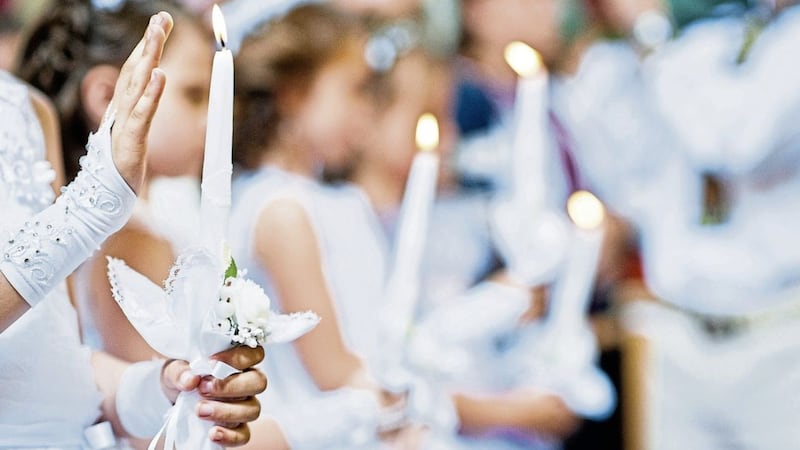THE Vatican Council was without doubt one of the most significant cultural events of the 20th century for Irish culture taken as a whole, especially through its documents on the Church in the modern world and on religious freedom, and thus on the concept of pluralism.
Was Irish Catholicism ready for radical change? Not only was the Church culture of the time inadequate to face the challenge of change, but that culture was in itself something that made real and realistic change more difficult.
That the once-conformist Ireland changed so rapidly and with few tears was read as an indication of a desire for change, but perhaps it was also an indication that the earlier conformism was covering a shallow faith and a faith built on a faulty structure which people no longer really endorsed.
The good old days of traditional mid-20th century Irish Catholicism may in reality not have so good and healthy after all.
The sexual abuse scandals have affected the faith of many and at the same time they were an indication of an underlying crisis of faith where the self-protective institution had become in many ways decoupled from the horror which ordinary people rightly felt.
The emerging post Vatican II new religious culture, with its stress on the role of the laity, found itself once again betrayed by a culture of clerical self-protection.
All of this indicates how Ireland needs to do much more to incorporate a broad spectrum of activity of laymen and women in the life of the Church and to be witnesses to their faith in the emerging Irish culture.
Pope Benedict in his homily at the Mass for the beatification of Cardinal Newman noted: "The service to which Blessed John Henry was called involved applying his keen intellect and his prolific pen to many of the most pressing 'subjects of the day'."
The Church in Ireland is very lacking precisely in "keen intellects and prolific pens addressing the pressing subjects of the day".
Many of the reform movements are still clerically led and still fundamentally clerical in their vision of the Church. They represent an older generation.
Since the failure of Newman's Catholic University project in Ireland, the Irish Church has not really found the right path of a balanced Catholic presence in Irish culture.
When I was received by Pope Benedict on the occasion of my first ad limina visit 10 years ago, I arrived well prepared with all my statistics and my analysis of the bright spots and the shadows of Catholicism in Dublin.
With the exception of Catholic Schools Week, the Irish religious education establishment is fixated on questions of ownership and management and too little on the purpose of the Catholic school and the outcomes of Catholic education in terms of faith formation
After greeting me, the Pope started the conversation immediately by asking me: "Where are the points of contact between the Church in Ireland and those areas where the future of Irish culture is being formed?"
Instead of asking me about the number of parishes he quizzed me about the relationship between faith and universities, and media, and politics, in art and literature, as well as fundamental ethical issues on economy and society.
Pope Benedict's question is still today a vital one for the Church in Ireland to address and on which to reflect.
The Catholic Church in Ireland will have to learn a new manner of being present in society. A Protestant leader from Northern Ireland told me recently that some years ago, he would have spoken of change in Church culture "from management to mission". Now, he said, we have to move "from monuments to movements".
The Catholic Church in Ireland has to avoid wasting time and resources in keeping in place and maintaining monuments: physical, structural, institutional and financial.
The Irish Church in the future must become be a much more monument-less one, but rather one which reaches out into hearts and becomes heart-driven through the conviction of those who feel touched and inspired by the message and teaching of Jesus Christ.
Faith is not about establishment. It is about taking the risk of abandoning one's own security in order to be like the God who did not cling to the trappings of power and authority, but who gave himself totally for our sakes.
Preparation for First Communion and Confirmation is carried out primarily in schools. There is a stubborn reluctance within the Church to allow that situation to change
This is a message which is difficult to comprehend and realise especially by those of us who have a leadership role in the Church and who are open to the perennial temptations to defend and even to abuse the power which was given into our hands to be servants.
In its earliest days the Irish Church was fundamentally monastic. Bishops were hired by abbots to carry out sacramental ministry.
While I am not advocating a return to such practice, it is important for us to remember that hierarchy is only one pillar in the nature of the Church.
The Church has to become less narrowly institutional and allow other forms of charismatic presence to animate the Church.
Many of the attempts to address the question of the drop in the numbers of priest are still priest-centred, rather then focusing on the role of the wider believing community in a different forms of leadership.
This, of course, cannot be inspired by trying to replace priests through laymen and lay women becoming substitute priests.
It requires new ways of ensuring that every member of the Church becomes a missionary disciple of Jesus.
This search for different forms of leadership is not a question of the sociology of leadership, but a form of trying to follow Christ whose concept of leadership though service was revolutionary in its time and remains revolutionary today.
We need flexible interaction which can address the future. Above all, we need new ways of reaching out to and involving young people actively in the Christian life.
How do we move towards institutional reform and achieve a less monumental Church structure? Where are the focal points which will foster such a move?
Institutions have an innate resistance to change and a tendency to self-preservation.
Some of the attempts at Church reform have only increased bureaucracy and bureaucracy is even more resistant to change.
The Catholic Church in Ireland has to avoid wasting time and resources in keeping in place and maintaining monuments... it must become heart-driven by those who feel touched and inspired by Jesus Christ
Let me take as an example the educational system. Almost 90 per cent of all primary schools in Ireland are under religious patronage, and are almost fully financed by the State - yet less than 80 per cent of the population registers as Catholic.
Preparation for First Communion and Confirmation is carried out primarily in the schools. There is a stubborn reluctance within the Church to allow that situation to change.
With the exception of Catholic Schools Week, the Irish religious education establishment is fixated on questions of ownership and management and too little on the purpose of the Catholic school and the outcomes of Catholic education in terms of faith formation.
It is stressed that Catholic schools are most welcoming of people of different faiths and of social background and of educational disability. That is indeed true.
This is not, however, a reason for maintaining patronage of most of the primary schools in the country, when more and more people want something else.
From the moment of my appointment as Archbishop, I advocated a process of divestment of a substantial number of Catholic schools to foster a more pluralist presence which would reflect changing demographics.
It would also open the possibility of more clearly defining the Catholic nature of Catholic schools. I have to admit that I have been relatively unsuccessful in pushing that idea into practice.
More and more parents look on their local Catholic schools primarily as State schools somehow under Catholic patronage.
Ireland needs to do much more to incorporate a broad spectrum of activity of laymen and women in the life of the Church and to be witnesses to their faith in the emerging Irish culture
If enrolment policies become more diversified, equality and non-discrimination legislation will be used to challenge any exclusive denominational character in the ethos of a State school, except where necessary to protect the rights of minorities.
The risk now looms large that effectively it will become more and more difficult to maintain a true Catholic ethos in Catholic schools.
The move towards parishes undertaking more effective faith formation of young people is minuscule.
I fear that much of the debate about schools fails to address the real challenges about the religious education of our young people.
The principal contribution of Church institutions in an increasingly secular society is, as Pope Benedict put it, "to witness to God in a world that has problems finding Him... and to make God visible in the human face of Jesus Christ, to offer people access to the source without which our morale becomes sterile and loses its point of reference".
Christian faith is not just a faith about doctrines or about rules and regulations or about ethical standards against which we have to measure our own moral behaviour.
It is not just about reforming structures. It is about the ability to preach and witness to the message of Jesus.
Reform in the Church is not in the first place about the redistribution of power, but about the redefinition of power in terms of the way in which Jesus revealed who God is.
- Dr Diarmuid Martin is Archbishop of Dublin. Abridged from a major address on 'The Challenge for the Church in the 21st Century' given in the Diocese of Wurzburg in Germany.








